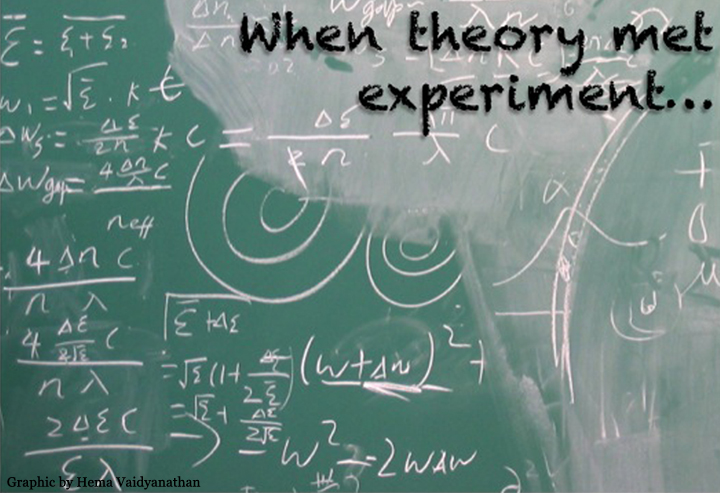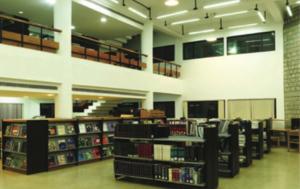With $1M award, the Simons Foundation chooses NCBS as a major life sciences partner
In a boost to theoretical research on campus, the Simons Foundation has awarded the National Centre of Biological Sciences (NCBS) a 5-year, $1M grant to establish the Simons Centre for the Study of Living Machines.
The Simons Foundation is a private organization set up by mathematician-turned-investor-turned-philanthropist Dr. James Harris Simons, with the goal of supporting fundamental research. While the Foundation has a long and successful track record in funding mathematical and physical sciences initiatives, it has recently focused on life sciences and autism research. The Foundation's institutional grants are typically awarded to independent centres that operate within university systems. With this award, NCBS joins the ranks of universities such as MIT and Harvard that have benefited from Foundation institutional grants. The five researchers at NCBS whose research activities will be funded by the grant include Shachi Gosavi, Sandeep Krishna, Madan Rao, Mukund Thattai and Madhusudhan Venkadesan. This is the first Foundation grant of its kind outside of the United States and "That's why this is huge!" says Thattai. "Most of the people associated with [this] Centre are young," feels Madan Rao, "and it is a sign of the tremendous confidence that the Simons Foundation has in the group."
All five theoretical biology teams in the Simons Centre for the Study of Living Machines will be housed in the interactive, communal theory space at NCBS, right at the heart of campus. Which is exactly where theoretical biology belongs, feels Thattai. "Theoretical biologists rely on constant collaboration and discussions in the middle of an experimental environment," says Thattai. "That is what is unusual about NCBS and the new [Simons] Centre." This unique feature of NCBS's application seems to have caught the attention of the Foundation. "We are pleased to support the activities of the Centre for the Study of Living Machines at the NCBS," said Andy Millis, Associate Director for Physics at the Simons Foundation. "The researchers in the Centre are outstanding scientists, and the concept of embedding a critical mass of first-rate theorists in an excellent biological research institute is very interesting. We anticipate great scientific accomplishments in the coming years."
The focus of the Simons Centre for the Study of Living Machines will be to address how the form of a molecule or a cell or an organism impacts its function, and in turn how evolutionary pressures have led to the current form and function of biological systems. "Deep science requires deep mathematics. Yet, deep mathematical problems often arise out of attempts to address basic phenomena in the sciences.," says Venkadesan. As the grant states, the work carried out at the Centre will "hope to highlight the potential of theory to revolutionize the practice of biology."
The Simons Foundation grant is expected to bolster the ongoing theoretical biology efforts on campus. NCBS has already committed to invest over $5M across five years to support theoretical biology activities. However, the Simons Foundation grant will help in setting up activities that are not covered by the intramural funding: a visitor's program, a post-doctoral fellows program and an annual retreat that will promote theory-experiment collaborations. The Simons Visitors' program will allow established scientists to come to NCBS for short periods up to a total of 12 weeks a year. Researchers who would like to work with theoreticians and experimentalists on questions in biology will be able to travel to NCBS from around the world. The Foundation will also support an annual Theory Retreat, involving both students and faculty members, giving theoretical and experimental research groups an opportunity to exchange ideas. Each year, two Graduate Collaborative Awards will be given to student proposals arising from themes discussed at the retreats.
However, it is the Simons Post-doctoral Fellows program that promises to be the highlight of what the grant has to offer to the faculty. Run along the lines of the intensely competitive NCBS Fellows program, the grant will support six post-doctoral fellows each year for 2-4 year fellowships. Rao says, "This award should encourage other young MSc/PhD students and post docs, both at a national and international level, to be part of a serious and fundamental engagement between biology and physics/math/engineering sciences at the Simons Centre." Citing the inability of even a premier institution, such as NCBS, in India to attract quality post-docs and graduate students, Thattai says that Simons Foundation grant, with its instantly recognizable name and cachet in the physical and mathematical sciences, will serve to attract quality applicants from around the world to NCBS. "With this grant, we are now visible and we can take our program to the next level," he says.
For Venkadesan, the most important thing he hopes will come out of the Simons Foundation grant is this: "By supporting the interaction between mathematics and biology, (I hope) this grant will drive the discovery of new biology and at the same time create new mathematical challenges." Thattai says, "Theoretical work in biology, even the best work, is still peripheral. It is rare for a theory project to impact biology as a whole. We would like to create just such impact. We want to show that when we are given the support, we are serious and can do great work." The Simons Centre will officially start July 2013 and applications for post-doctoral positions will be advertised soon.


Comments
"Citing the inability of even
No! There are not enough of
Good to know about the Simons
Post new comment